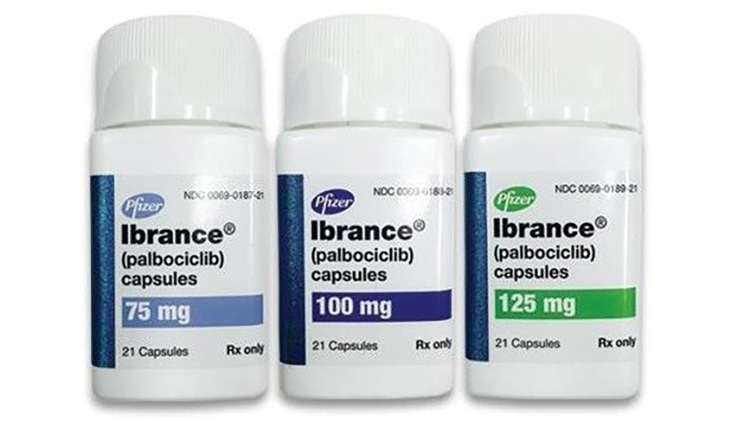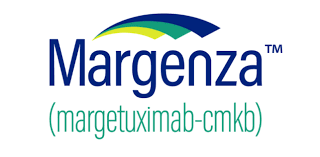Ibrance (palbociclib) vs Margenza (margetuximab-cmkb)
Ibrance (palbociclib) vs Margenza (margetuximab-cmkb)
Ibrance (palbociclib) is a CDK4/6 inhibitor used in combination with hormonal therapies for the treatment of HR-positive, HER2-negative advanced or metastatic breast cancer. Margenza (margetuximab-cmkb), on the other hand, is an anti-HER2 antibody indicated in combination with chemotherapy for the treatment of patients with metastatic HER2-positive breast cancer who have previously received two or more anti-HER2 regimens. The choice between Ibrance and Margenza would depend on the specific characteristics of the breast cancer, such as hormone receptor and HER2 status, as well as prior treatments, making it essential for patients to discuss with their healthcare provider to determine the most appropriate therapy for their individual condition.
Difference between Ibrance and Margenza
| Metric | Ibrance (palbociclib) | Margenza (margetuximab-cmkb) |
|---|---|---|
| Generic name | Palbociclib | Margetuximab-cmkb |
| Indications | HR-positive, HER2-negative advanced or metastatic breast cancer | Metastatic HER2-positive breast cancer |
| Mechanism of action | CDK4/6 inhibitor, halting cell division | Monoclonal antibody targeting HER2, immune system engagement |
| Brand names | Ibrance | Margenza |
| Administrative route | Oral | Intravenous |
| Side effects | Neutropenia, leukopenia, infections, fatigue | Infusion-related reactions, fatigue, nausea, diarrhea |
| Contraindications | None known | None known |
| Drug class | CDK4/6 inhibitor | Monoclonal antibody |
| Manufacturer | Pfizer | MacroGenics |
Efficacy
Efficacy of Ibrance (Palbociclib) in Breast Cancer
Ibrance (palbociclib) is a targeted therapy known as a cyclin-dependent kinase (CDK) 4/6 inhibitor, which is used for the treatment of certain types of breast cancer. Specifically, it is indicated for hormone receptor-positive (HR+), human epidermal growth factor receptor 2-negative (HER2-) advanced or metastatic breast cancer. The efficacy of Ibrance, in combination with an aromatase inhibitor or fulvestrant, has been demonstrated in multiple clinical trials. These studies have shown that Ibrance significantly prolongs progression-free survival (PFS) compared to the combination of an aromatase inhibitor or fulvestrant alone. The improvement in PFS indicates that Ibrance can effectively delay the progression of the disease in the indicated patient population.
In the PALOMA-2 trial, for instance, Ibrance in combination with letrozole as a first-line treatment for postmenopausal women with ER+/HER2- advanced breast cancer significantly improved median PFS compared to placebo plus letrozole. Another study, PALOMA-3, showed that Ibrance when used with fulvestrant in women with HR+/HER2- advanced breast cancer who had relapsed or progressed on prior endocrine therapy, also resulted in a significant improvement in PFS. These results underpin the approval and use of Ibrance in the treatment of HR+/HER2- advanced breast cancer.
Efficacy of Margenza (Margetuximab-cmkb) in Breast Cancer
Margenza (margetuximab-cmkb) is a monoclonal antibody that targets HER2, a protein overexpressed in some forms of breast cancer. Margenza is approved for use in combination with chemotherapy for the treatment of adult patients with metastatic HER2-positive breast cancer who have received two or more prior anti-HER2 regimens, at least one of which was for metastatic disease. The efficacy of Margenza was evaluated in a clinical trial known as SOPHIA, which compared the use of Margenza plus chemotherapy to trastuzumab plus chemotherapy in this patient population.
The SOPHIA trial demonstrated that patients receiving Margenza in combination with chemotherapy had a statistically significant improvement in PFS compared to those receiving trastuzumab and chemotherapy. The median PFS was extended by approximately one month, and the overall response rate (ORR) was also higher in the Margenza group. Although the improvement in overall survival (OS) was not statistically significant at the time of the primary analysis, updated results continue to be evaluated. Margenza's ability to bind to immune cells is different from trastuzumab, which may enhance its ability to mediate antibody-dependent cellular cytotoxicity, suggesting a potential mechanism for its efficacy.
Regulatory Agency Approvals
Ibrance
-
European Medical Agency (EMA), European Union

-
Food and Drug Administration (FDA), USA

-
Health Canada

-
Therapeutic Goods Administration (TGA), Australia

-
Medsafe (NZ)

Margenza
-
Food and Drug Administration (FDA), USA

Access Ibrance or Margenza today
If Ibrance or Margenza are not approved or available in your country (e.g. due to supply issues), you can access them via Everyone.org.
How it works

Make an enquiry
Choose the medicine you want to buy, answer a couple of questions, and upload your prescription to speed things up. We’ll get back to you within 24 hours.


Make an enquiry
Choose the medicine you want to buy, answer a couple of questions, and upload your prescription to speed things up. We’ll get back to you within 24 hours.


Breeze through the paperwork
We'll guide you through the required documents for importing unapproved medicine, ensuring you have all the necessary information.


Get a personalized quote
We’ll prepare a quote for you, including medicine costs and any shipping, administrative, or import fees that may apply.


Receive your medicine
Accept the quote and we’ll handle the rest - sourcing and safely delivering your medicine.

Some text on this page has been automatically generated. Speak to your physician before you start a new treatment or medication.
Let's talk
If you have any questions, call us or send us a message through WhatsApp or email:
Contact us




